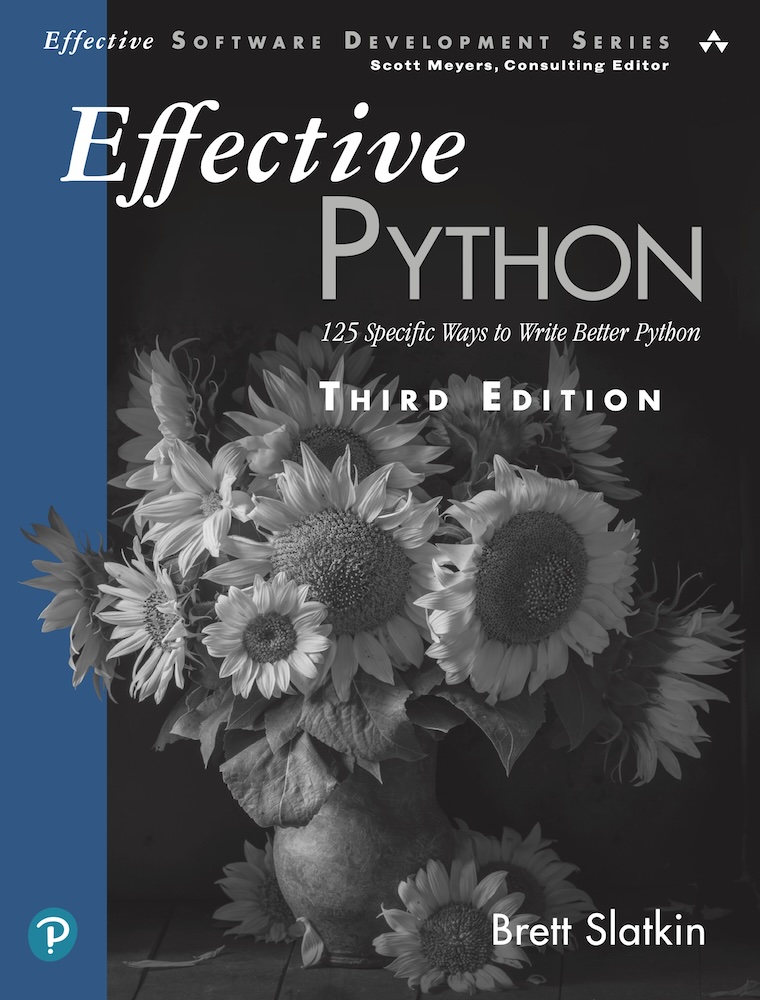Summary
Python is a versatile and powerful language, but leveraging its full potential requires more than just knowing the syntax. Effective Python: 125 Specific Ways to Write Better Python, 3rd Edition is your comprehensive guide to mastering Python’s unique strengths and avoiding its hidden pitfalls. This updated edition (published by Pearson Addison-Wesley in November, 2024) builds on the acclaimed second edition, expanding from 90 to 125 best practices that are essential for writing high-quality Python code.
Drawing on years of experience at Google, Brett Slatkin offers clear, concise, and practical advice for both new and experienced Python developers. Each item in the book provides insight into the “Pythonic” way of programming, helping you understand how to write code that is not only effective but also elegant and maintainable. Whether you’re building web applications, analyzing data, writing automation scripts, or training AI models, this book will equip you with the skills to make a significant impact using Python.
Buy the Book on AmazonBuy DRM-free eBook
Already Have the Book?
Visit the GitHub project to see all of the code snippets from the book in one place. Run and modify the example code yourself to confirm your understanding. You can also report any errors you’ve found.
For future updates about the book, related videos, translations, conference presentations, and more, choose one of these ways to stay in touch:

